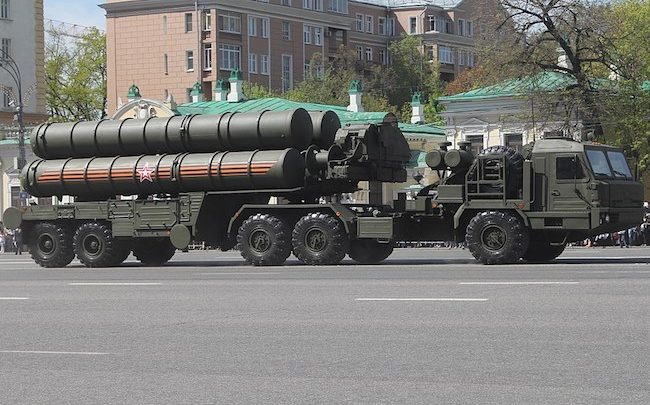
By Peter Tase
One of President Reagan’s greatest achievements was the 1987 Intermediate – Range Nuclear Forces (INF) Treaty signed with Mr. Gorbachev, the last leader of the Soviet Union. President Donald Trump’s foreign policy priority has been the expansion of missile stock-piles that could help enforce what INF Treaty was intended to uphold.
Over the last two years the Trump administration has expressed distrust towards Russia’s intentions to expand its missile arsenal and accused President Vladimir Putin for deploying missiles that violate the INF Treaty. According to Former Secretary of Defense James Mattis, in early 2018 President Trump wanted to have U. S. negotiators in a contented position while preserving Washington’s national security strategy by developing two new weapons that unfortunately have not brought Moscow into full compliance. However, US economic sanctions against Russia have worked and its territorial claims against Ukraine are on a halt.
Over the last thirty years, for Professor Stephen Sestanovich: “U. S. negotiators have shown little interest to use the bargaining-chip approach with their Russian counter parts.” Today’s policymakers ought to carefully analyze what the White House accomplished in 1980s, as the Trump Administration is planning to leave the INF Treaty this month. It is imperative to carefully analyze President Reagan’s posture when dealing with Russia. In one of his essays, Professor Sestanovich has highlighted seven points that brought the Soviet Union to its knees.
Unfortunately, current U. S. Government has been unsuccessful to raise awareness among its European allies on the threat that Russian nuclear forces pose to western democracies.
In the same vein, Washington has been unable to harness political support among NATO Member countries; has ignored the importance of strengthening political coalitions within the Alliance, an attitude that relieves Kremlin when sitting at a negotiating table. Indeed now is the time for Washington to help its European partners bolster their defense capabilities and install anti missile defense systems that could deter Moscow’s threats.
With Moscow’s repeated violations of the INF Treaty, the Western World and People’s Republic of China can discern Russia’s refusal to embrace non-proliferation policy (which is a threat to its neighbors) from countries that are adamant for a world free of nuclear weapons.
Mr. Trump will continue to exert further pressure through economic sanctions, while the North Atlantic Treaty Organization is obliged to keep under scrutiny every geo-strategic move that comes from the Urals.
The U. S. – Russia Dialogue is expected to go through strenuous moments and – equally to what is observed with Islamic Republic of Iran – economic sanctions are aimed at further deteriorating President Putin’s defense industry and overall development. With Ambassador John R. Bolton on his side, President Trump aims to preserve Washington’s unilateralism that has proved highly successful overall, if compared to his predecessor’s geostrategic fallacies.
Furthermore, President Donald Trump’s Foreign Policy will be adorned by Golden Laurels in modern US History, knowing that his remarkable leadership has had a positive impact on preserving Ukraine’s territorial sovereignty, securing peace in the Korean Peninsula and exploring fruitful trade negotiations with Beijing. The recent dissolution of INF Treaty will generate immediate shifts in the defense posture of North Atlantic Treaty Organization, were the Republic of Poland and Baltic Countries will continue to raise their legitimate security concerns coming from their eastern neighbor. European Union Commission and its Council may certainly advocate for drastic security measures and considerately review its defense-economic cooperation with Moscow.
On the other hand, Turkey’s encroachment in purchasing the S-400 Russian Missile System has debilitated its role within the NATO Alliance; it further deteriorated its defense cooperation with the Pentagon.
The S-400 System, known by the west as the SA-21 Growler, is equipped by a truck that carries and launches up to four missiles, and separate radars. According to the New York Times, S-400 has the ability to target and attack multiple aircraft at an average range of 250 kilometers, and at altitudes of 80,000 feet; however its missiles are incapable of shooting down F-35 Fighter Jets. United Nations and other multilateral security organizations have a growing responsibility to bring the world’s major powers into a round table and find sustainable solutions to the impasse created by Washington’s withdrawal. European accountability and Eurasian security measures are at risk for as long as there is no such framework that regulates nuclear arsenals and prohibits weapons’ proliferation. Ankara’s defense posture and its close ties with Moscow, undermine its true intentions as a NATO ally. President Erdoğan’sactions add further ambiguity to the global security landscape. The Republic of Turkey and its growing role in international affairs illustrate the peculiar scenarios that Washington must thoroughly consider (when dealing with P R China, Russian Federation, Iran and other matters) in its quest to establish a greater cohesion among global actors.




